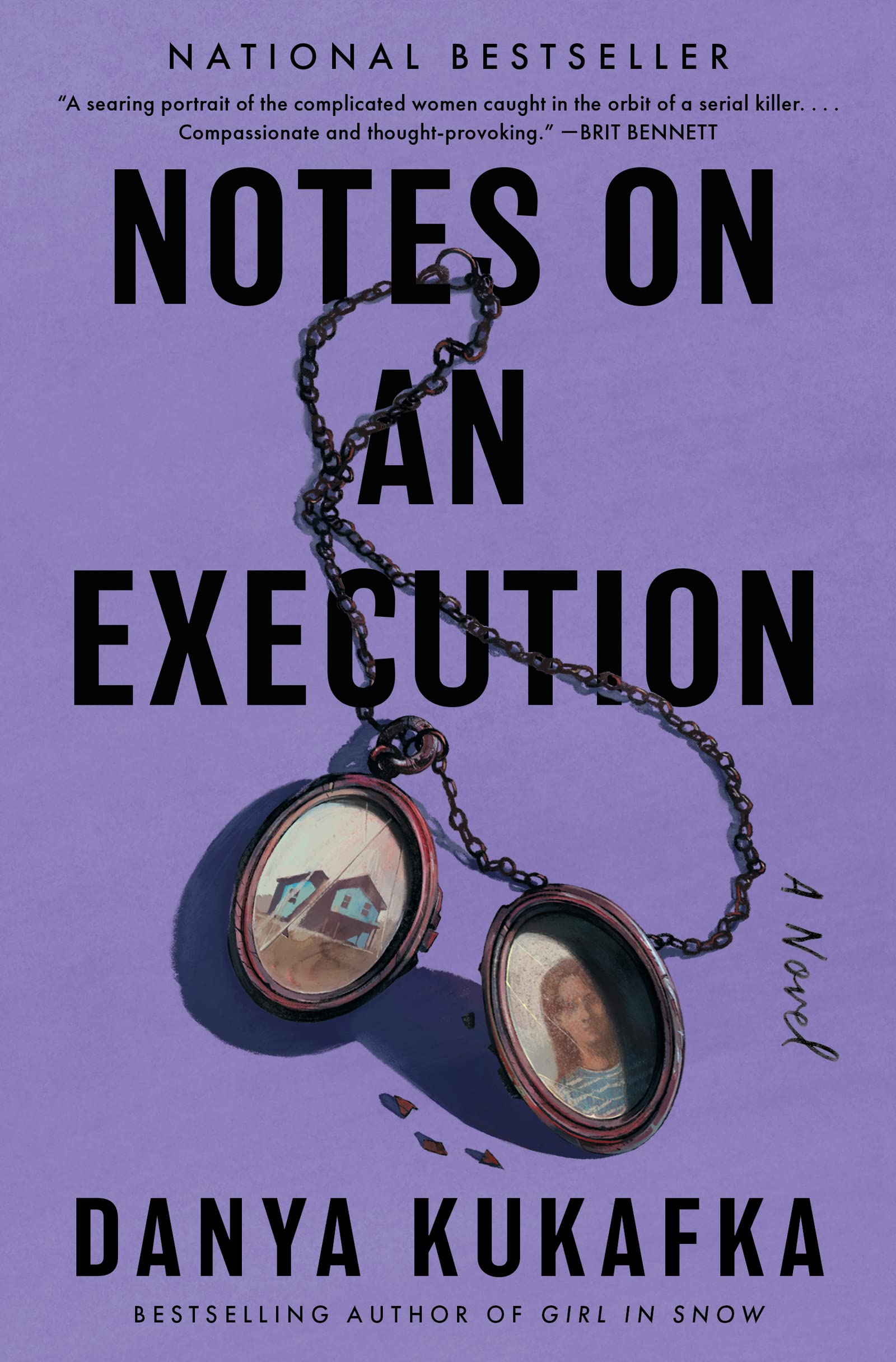Notes on an Execution
by Danya Kukafka
literary suspense
William Morrow—January 2022
There aren’t any original takes on the serial killer novel left. No f***ing way.
One thing you should know about me? I LOVE serial-killer narratives. When firing on all cylinders, these pieces make for fantastic brain food—macabre dives into the plunging psychological depths of the human psyche that allow us to confront our darkest fears, desires, and obsessions while remaining in the safe confines of our own home. And combine that with the fact these types of stories often contain propulsive plot twists that give you carpal tunnel because you were gripping the book so fiercely? It’s a win-win.
In fact, my appreciation of this thriller subgenre is so well-documented amongst those who like/love me that it’s become a running joke: oh [insert name of book/film/TV series here] is really dark, moody, and features a serial murder trope? Peter has probably already read/watched it! And I’m happy to report that 99.7% of the time, I don’t let them down—I HAVE seen or read it already, and I’ll be more than delighted to give them my two cents (eh, probably more like a quarter) on it.
That said, however—even I can admit that a LOT of serial-killer centric works of fiction are … uninspired, to put it politely. Even when they claim to “deconstruct” the genre, they feature hackneyed, clichéd detective protagonists (if I see one more writer use the word “grizzled” to describe an investigator, for instance—I will quit life), one-dimensional villains who are so monstrous it almost verges on comedic, and an unhealthy, desensitized, male gaze-y detachment from the horrifyingly brutal realities of murder. And not to mention—the serial-killer story, at this point … has been done. And done. And then done again. Especially given the true crime boom of the past five to ten years, the market for those types of narratives has become incredibly oversaturated—which makes finding a true standout entry in that oeuvre rarer than a college student vacuuming under their bed.
But don’t you fret—I dust-busted between all the nooks, crannies, sticky socks, and moldy takeout boxes and found a sparkling gem of a book—Notes on an Execution by Danya Kukafka.
The novel follows Ansel Packer—a serial killer who’s been sentenced to be executed in just twelve hours’ time. But instead of delivering the more traditionally linear “how did we get here?” structure, Kukafka chooses to plot the novel through a time-jumping, kaleidoscopic lens that alternates between four different perspectives: Lavender, Ansel’s mother who had him when she was seventeen; Hazel, the twin sister of Ansel’s wife; Saffy, the detective who ended up capturing Ansel; and Ansel himself. As the hours left on Ansel’s life wind down to minutes, and his story inescapably intertwines with Lavender, Hazel, and Saffy’s, he is forced to confront the decisions of his past that he’s spent a lifetime trying to outrun—and the behaviors he failed to control.
While, yes, Execution broadly fits under the “serial killer thriller” label, it achieves that by sneaking in the metaphorical back door. It is much more of an exercise in slow-burn, thoughtful, and meditative restraint—a cauldron of rich literary prose, simmering unease, and surprisingly empathetic characterizations. And even despite being a brilliantly told, self-contained story of suspense, the real lasting significance of Execution (and the thing that will make it remembered for years to come) is the themes it explores and the deeply uncomfortable questions it asks. By not mythologizing Ansel’s murders and the ensuing investigative chase to apprehend him, and instead putting the focus on the consequences of his actions on the women in his life, Execution forces readers to reckon with why they are so fascinated by the narrative construct of the male serial killer. Furthermore, I took a complete inventory of myself and my reading proclivities and sitting with some uncomfortable truths about the subgenre that I love—and I’m sure I wasn’t the only reader to do so.
On a less macro vantage point, there were two other aspects of Kukafka’s craft that I found particularly refreshing. Firstly, she managed to completely subvert the “angry, misunderstood misanthrope” trope of the serial-killer character. While there is an element of that in the book (Ansel is working on a manifesto about human nature and decision-making in prison, after all), Kukafka manages to dodge the bullet of cliché by painting Ansel as someone not at all in denial about who he is. In fact, the book depicts him spending decades of his life actively fighting against the unexplainable, festering urge in him to kill—he desperately wants to prove to the world (and to himself) that he can be normal. Watching that “inner-life” push-pull within Ansel was something special indeed and was executed with great aplomb by Kukafka.
I also marveled at how she managed to sustain the momentum of the story, particularly after one plot point. (Editor’s note: SPOILERS AHEAD). Throughout approximately the first two-thirds of the novel, there’s a looming “B story” thread of Ansel planning a daring escape when he’s being transferred to death row in a caravan, and his entire POV to that point is framed through that lens. Obviously, the plan doesn’t work, and Ansel is forced to truly accept his inevitable execution. When this happens, though, there’s still a decent amount of novel left, and … I was uncertain how Kukafka was going to keep us engaged after the narrative “dangling carrot” of Ansel’s escape had been yanked away. But Kukafka managed to overcome this, leaving my skepticism in the dust through her superb writing that only heightened in its stakes, emotional resonance, and depth as it went on—a true mark of talent.
So, thank you Ms. Kukafka for writing one of the most thought-provoking works of suspense I’ve read to date. You’ve challenged the conventions of the genre and triumphed—and the world of books is undisputedly better for it.
Browse the books reviewed by Book Pipeline.

